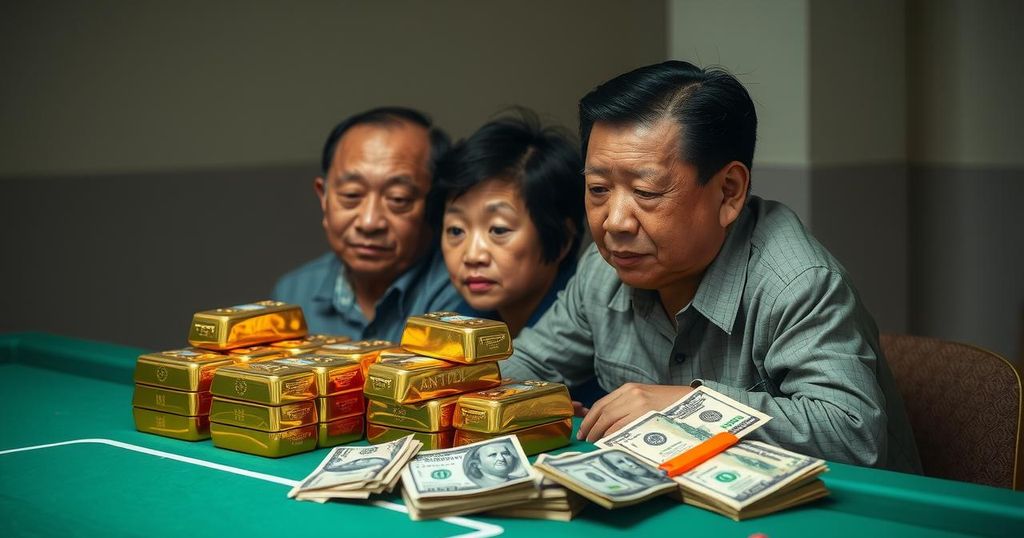Three Chinese nationals were arrested in the Democratic Republic of Congo with twelve gold bars and $800,000 in cash during a covert operation. Eastern DRC’s rich mineral resources have long been exploited, causing significant instability. The arrests follow concerns over illegal mining and prior controversial releases of Chinese nationals linked to the industry, amid the DRC government’s broader efforts to regulate its mineral sector and address exploitation claims against international companies.
Recent events in the Democratic Republic of Congo (DRC) have led to the arrests of three Chinese nationals who were found in possession of twelve gold bars and $800,000 in cash. The discovery was made in the Walungu area after a covert operation, reportedly kept discreet following the release of another group of Chinese individuals linked to illegal mining activities in the region. This occurrence highlights the ongoing struggle with illegal resource extraction in eastern DRC, which has been a locus of conflict and exploitation for decades.
The gold and cash were concealed beneath the seats of the suspects’ vehicle, as confirmed by South Kivu Governor Jean Jacques Purusi. He emphasized the necessity for secrecy due to the influence certain dealers hold in Kinshasa, which complicates law enforcement efforts in managing the country’s mineral wealth. Eastern DRC is rich in natural resources, yet its riches have long been exploited, aggravating regional instability.
Compounding the issue is the fact that militia factions control various mining operations within the area, profiting significantly from their illicit trade. Purusi expressed his astonishment at the prior release of 17 Chinese nationals with ties to illegal mining, citing their substantial financial liabilities to the government—amounting to $10 million in taxes and fines—as problematic for the integrity of the DRC’s mineral sector.
Amid these developments, the DRC government is simultaneously suing international corporations like Apple regarding the sourcing of minerals from conflict zones, raising concerns about exploitation and environmental harm stemming from illegal mining activities. The Congolese authorities allege that these practices finance violence and are interconnected with other human rights abuses, including forced child labor. The complexity of the situation is exacerbated by external factors, such as the region’s ongoing conflicts and accusations against neighboring Rwanda regarding the illegal mineral trade.
The Democratic Republic of the Congo, rich in natural resources such as gold, diamonds, and minerals for electronic batteries, has long faced issues of illegal resource extraction, driven by both domestic and foreign entities. The historical exploitation of these resources has contributed to ongoing instability and conflict in the region, often involving militia groups that profit from the trade. The DRC government’s recent actions, including arresting suspects associated with illegal mining and suing companies for their role in the supply chain, reflect a concerted effort to address these challenges and regulate the mineral sector more effectively. The DRC has faced international scrutiny regarding its mining practices, and the exploitation of its resources continues to be intertwined with violence, corruption, and human rights violations. As these issues persist, the government strives to reclaim control over its natural assets and mitigate the negative impacts associated with illegal mining operations.
In conclusion, the recent arrests of three Chinese nationals in the Democratic Republic of the Congo signify a noteworthy attempt by local authorities to tackle illegal mining and resource exploitation in a region plagued by instability. The complex interplay between valuable mineral resources and militancy underscores the broader challenges faced by the DRC in managing its wealth. As the government takes steps to enforce regulations and hold foreign actors accountable, the hope for a more stable and ethically managed resource sector remains paramount for the future of the nation.
Original Source: www.bbc.com






